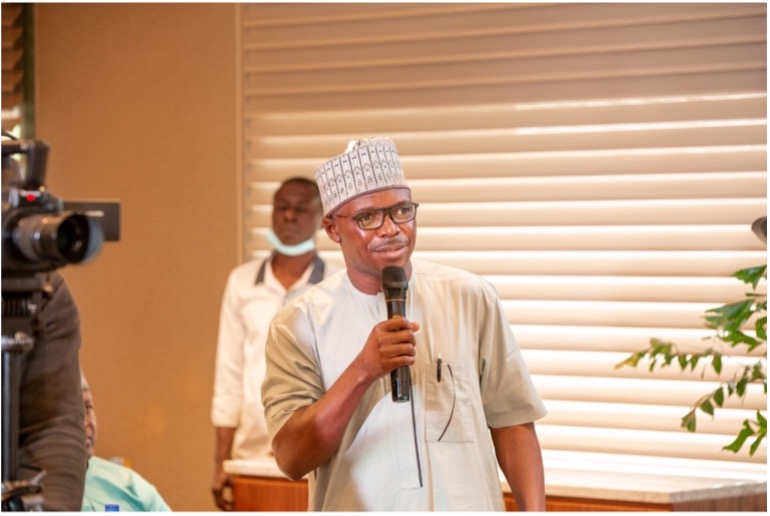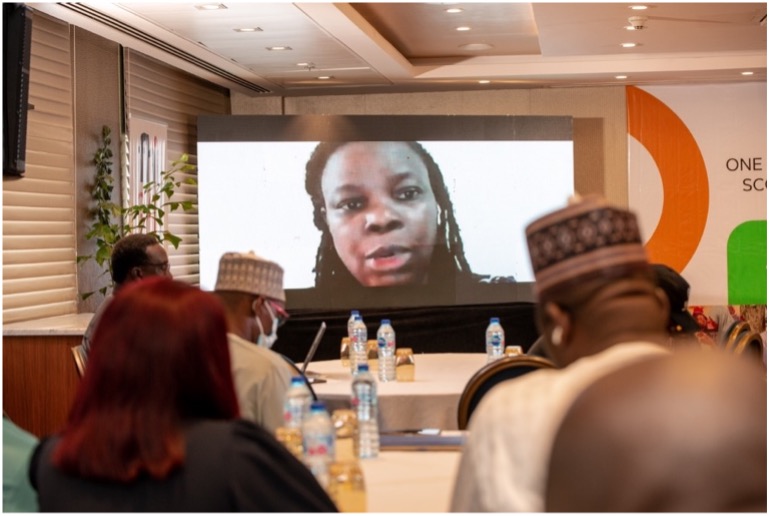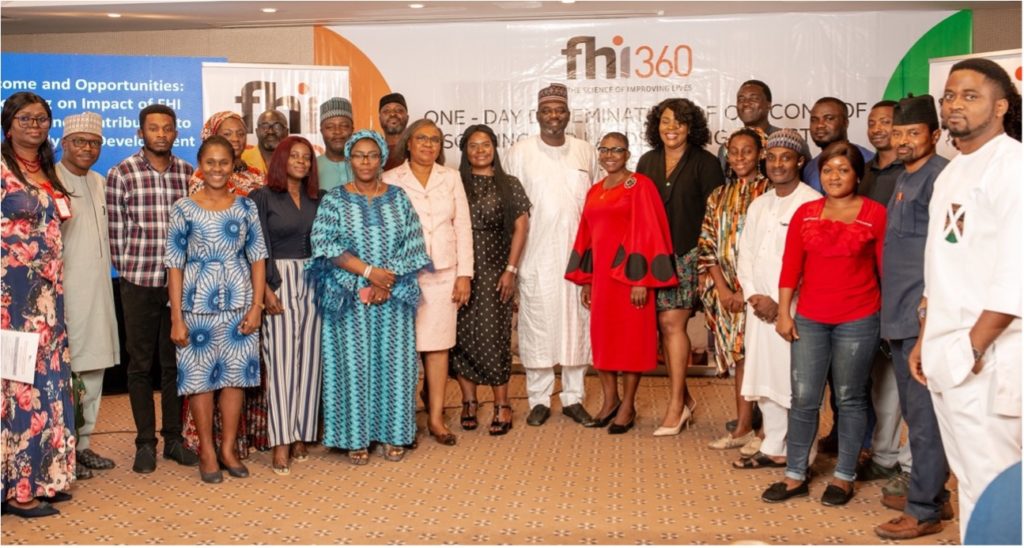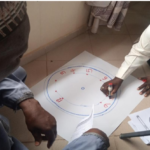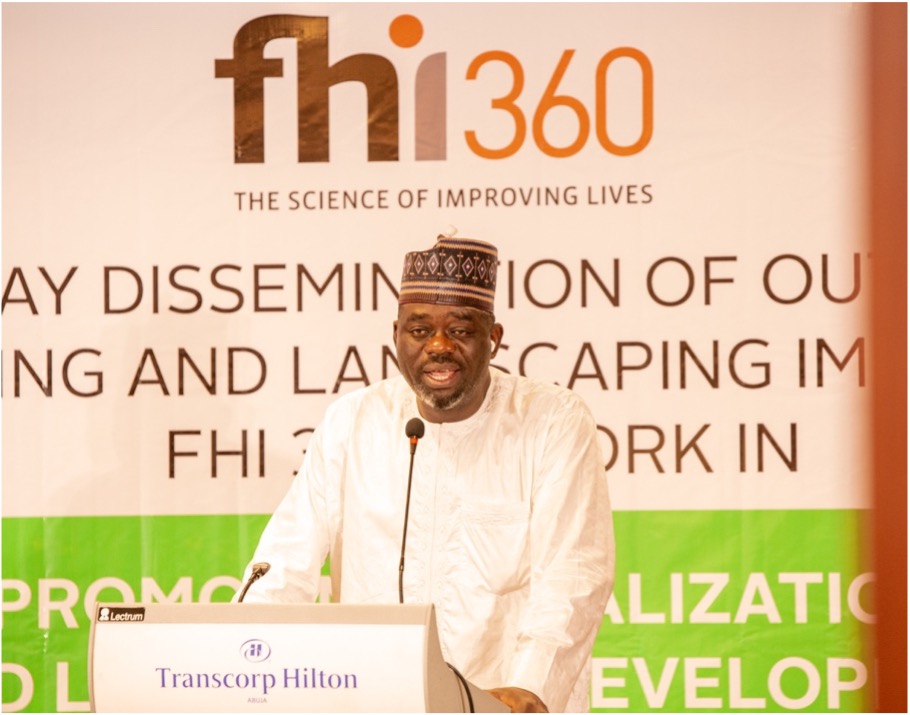
September 30th, 2022 had FHI 360 staff on a crucial session with the attendance of Stakeholders, CBOs, IPs, Partnering and Civil Society Organizations in a gathering themed; Dissemination of FHI 360 Nigeria’s Work and the Impact Towards Localization targeted at findings, outcomes and opportunities: from the assessment/scoping on impact of FHI 360 Nigeria’s work and contribution to localization & locally led development.
The event was commissioned with an opening remark by the FHI 360 Nigeria Country Director, IORWA APERA. In his remarks, he spotlighted that the journey to localization started years back and today, FHI 360 partners, and so many Civil Society Organizations are now accessing and utilizing grants to the benefits of Nigeria.
He further mentioned that the topic localization is being emphasized again as an important forerunner issue for the government and FHI 360 donors. While noting that the present government is vigorously pursuing initiatives that portray clear leadership across different areas of our lives, part of which is the creation of the ministry of Humanitarian affairs to cater to and oversee issues concerning humanitarian crisis and affairs which is a great effort portraying true leadership and ownership that the localization agenda is focused on. He affirmed that donors are of the perspective that there is a need for localization, leadership ownership in Nigerian NGOs and CSOs, to see that these problems are adequately resolved. To this effect, FHI 360 conducted an assessment to study the perception of partners on what localization means to them. He concluded his opening remarks by welcoming everyone to sit back and listen to the findings, testimony and feedback received from partners.
Delivering a speech on FHI 360 Nigeria’s vision and mission which was titled Defending the Core and Lifting the Needle for Greater Impact: the country director mentioned that FHI 360 used to be FHI but the name of the organization was changed due to the realization that the challenges of the family was beyond health, hence the new name captures other areas such as, education and human development which also affects family life and as such, FHI 360 Nigeria overall vision was carved out from the global vision and is focused on supporting the Nigerian government to improve human capital development in Nigeria. The human capital development index ranked Nigeria as 153 out of 158 among countries of the world with the worst human capital development indicators and with that, FHI 360 intends to support Nigeria to have a better human capital development through the internal business processes, innovate, learn and grow, improve financial performance not only internally but also with partners (external) and client performance.
Taking feedbacks from partners, FHI 360 was duly appreciated for the great efforts at ensuring FHI 360’s partnership and the work that they do is valued, which is evident with the growth FHI 360 has achieved with local partners, CBOs, Stakeholders, Government agencies and ministries and Nigeria as whole. Speaking on behalf of NACA’s DG, Funke said “Most practitioners in the development field in Nigeria have passed through FHI 360 at one point or the other and have learnt a lot there. FHI 360 supported NACA’s program on the Global Fund so well and because of their work and other partners.
Dr. Paul also noted that when the director of hospital services was appointed to oversee Covid pillars on COVID-19. They had a declaration by the former US president to donate ventilators, the next minute, they saw FHI 360 in their office ready for distribution of ventilators and mapping of isolation centers. FHI 360 is also currently into helping the agency reposition the oxygen landscape in Nigeria and they do not take that for granted. FHI 360 is contributing immense efforts in the health sector.
Notable moments at the event include the ‘Finding/Interview segment which explored people and organizations’ perception of what FHI 360 has been doing and suggestions for what FHI 360 should do to pursue implementations in Nigeria.
The ‘Success Stories’ segment allowed partnering organizations like ARFH, ECEWS, NEPWHAN, BEGLAD foundation and care Initiative, Anambra State Government, Akwa ibom State Government, ANHI, Isa Iyortim (HIV Medical Prevention Manager, USAID), NEPWHAN Uyo to reminisce on the journey from far back with FHI 360. Drawing the curtains, the WAMERO Portfolio Director, Robert Chiegil, while speaking on repositioning FHI 360 Nigeria assistance hub iterated that FHI 360 is much interested in helping individuals and the government implement programs sustainably through encouraging and enhancing local ownership and being more country led. There is none better to engage with than the local entities, the people who live in the community and understand the community. Finding what our issues are and how we can best support youth work. FHI 360 would like not to implement programs and would prefer local entities implementing the programs, while they provide them with all the technical assistance they need. This will be done by embedding technical experts in government, ministries, local NGOS to support their capacity building as well as their program implementation.
